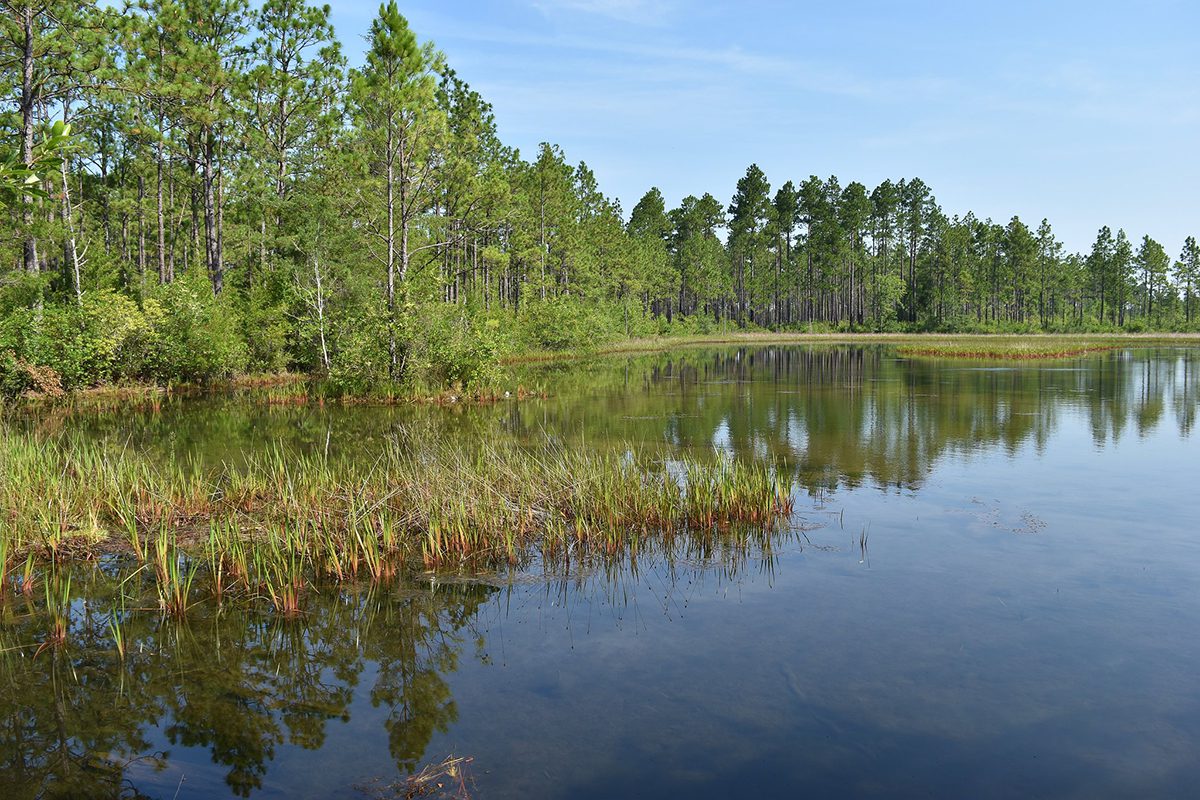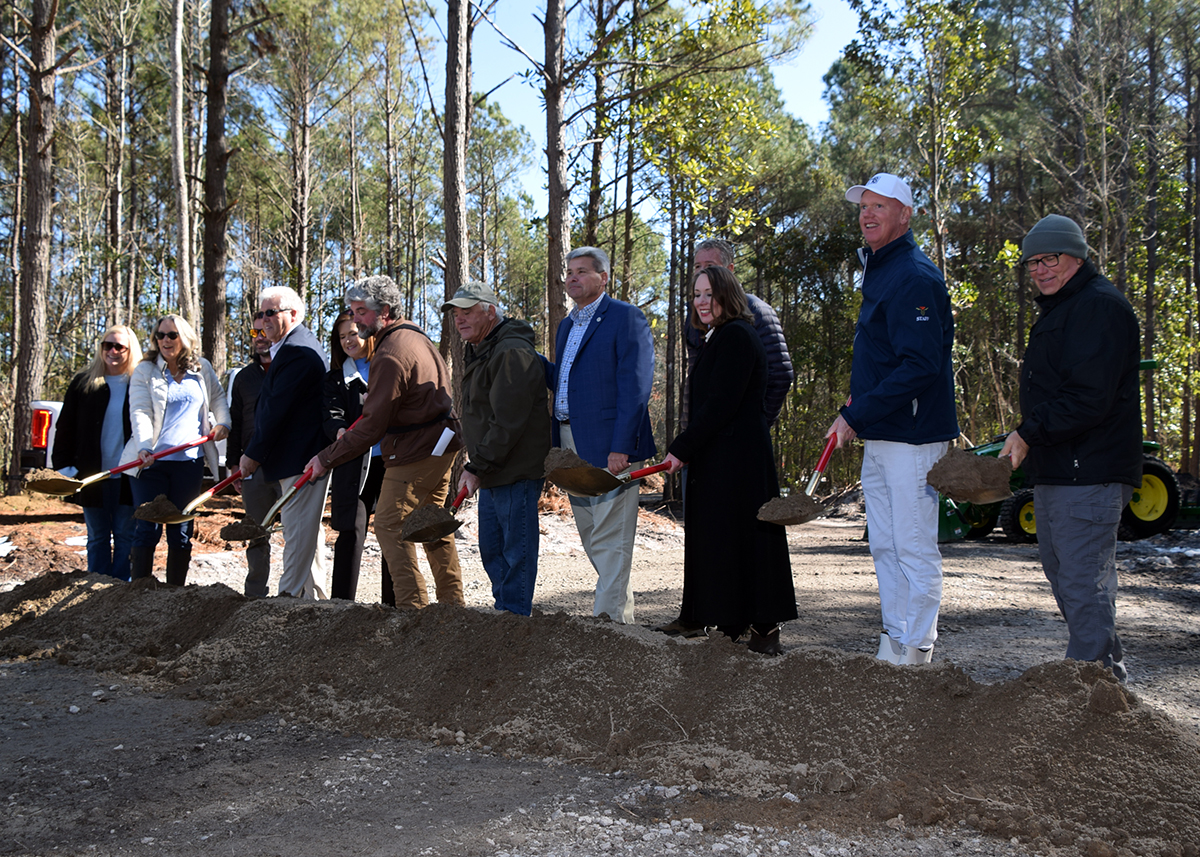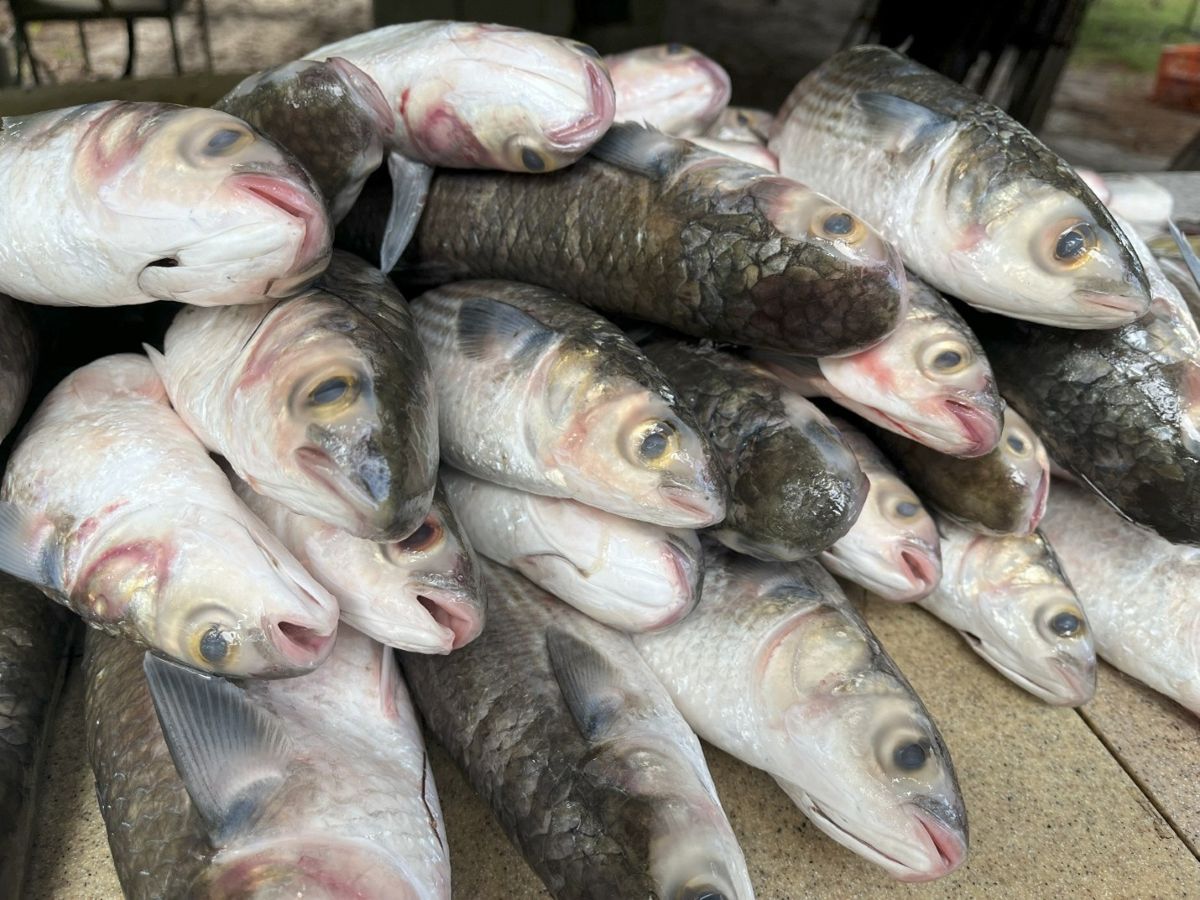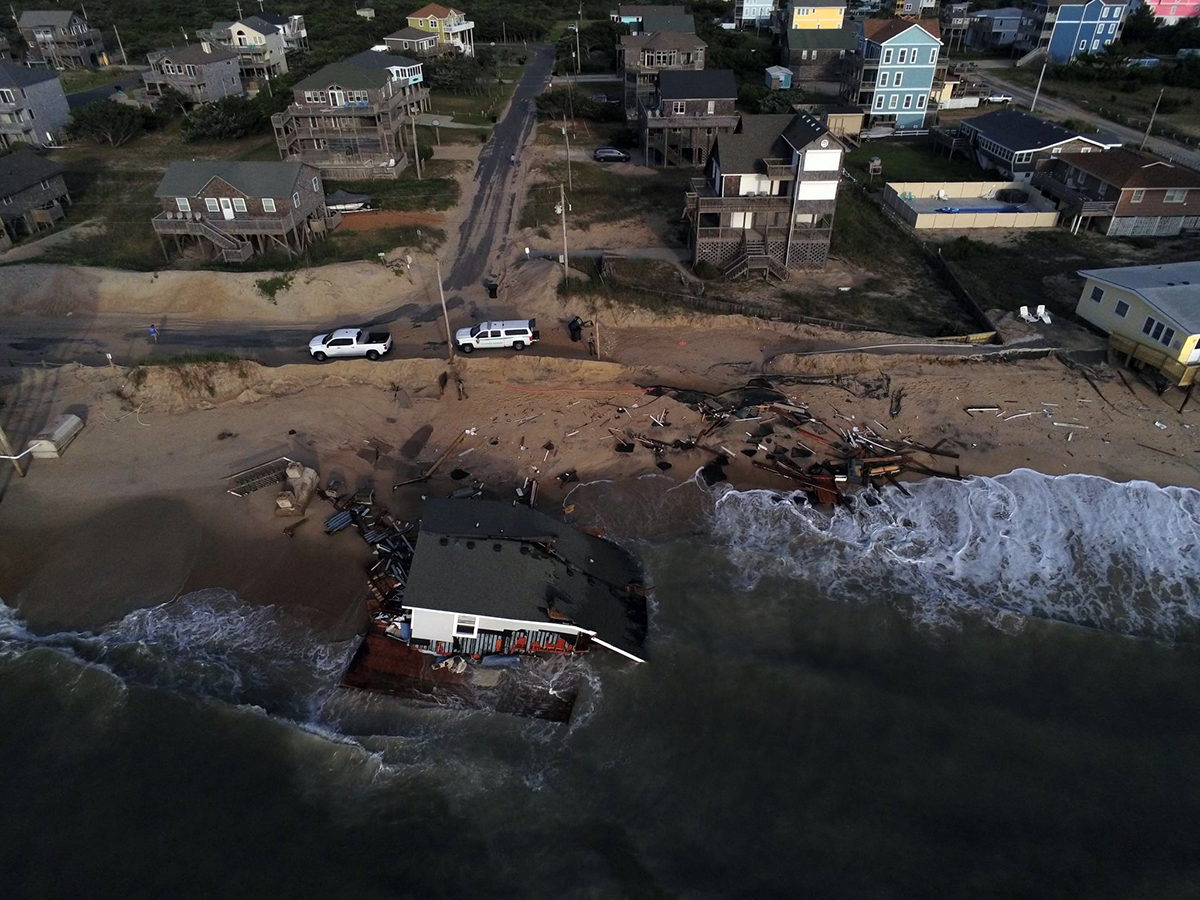
This story has been updated to clarify study findings.
Thousands of acres of wetlands in North Carolina stand to lose state protections under a new farm bill that would restrict how the state’s wetlands are defined.
Supporter Spotlight
The N.C. Farm Act of 2023 proposes to limit the definition of “wetlands to waters of the United States,” a rule that is currently being challenged in the nation’s highest court.
Environmentalists say the bill, if enacted, would strip the state’s ability to fill in gaps to protect federally nonjurisdictional wetlands, including isolated wetlands, which are those not directly connected to any body of water, but are hydrologically and ecologically valuable.
Concerns are also being raised about a provision in the bill that would change a rule requiring gases captured from hog waste lagoons be used to produce renewable energy.
The North Carolina General Assembly in 2015 passed a law regulating impacts to isolated wetlands, and the state Environmental Management Commission has adopted a temporary permitting rule for wetlands the state has identified as federally nonjurisdictional.
Those protections would be eliminated if the new farm bill passes, said Julie Youngman, a senior attorney with the Southern Environmental Law Center.
Supporter Spotlight

“Wetlands act like a sponge in that they can absorb a lot of water,” she said. “When you have big storms and protected wetlands that are healthy and functioning as they should be functioning upstream, they’re absorbing water and keeping massive amounts of water from moving downstream and flooding downstream communities. To the extent you protect fewer wetlands you’re reducing that capacity.”
Isolated wetlands recharge groundwater and can store a lot of water, a function particularly important during coastal storms.
A U.S. Environmental Protection Agency-funded study several years ago assessed isolated wetlands in an eight-county area of southeastern North Carolina and northeastern South Carolina. The study concluded that there are about 50,000 isolated wetlands in the study area, including about 30,000 in the North Carolina portion, each averaging about two-thirds of an acre.
“The General Assembly passed a law setting aside tens of millions of dollars to help local governments prepare for flooding and recover from flooding and it just seems irresponsible and kind of wasteful of government resources and our taxpayers dollars to, on the one hand, pass a law designed to react and prevent and prepare and recover from flooding and then within a year and a half or two years, pass a law that will inevitably increase flooding or reduce the state’s ability to prepare for flooding,” Youngman said.
Earlier this year, the Biden administration released its final rule defining “waters of the United States”, or WOTUS.
Related: House falls short in move to override WOTUS-rollback veto
The rule reinstates federal protections for millions of acres of wetlands in North Carolina, putting back into place longstanding clean water protections for streams, lakes, ponds and upstream wetlands that significantly affect what are considered traditional navigable waters. Those include waterways that are used for commercial recreational use, territorial seas and interstate waters.
Both the U.S. House and Senate voted to overturn the Biden WOTUS rule, but efforts to halt the rule fell short last week when the House failed to clear the two-thirds mark needed to override Biden’s April 6 veto.
The final rule will ultimately be determined in the courts.
The U.S. Supreme Court is expected to rule any day now on a case challenging the legality of the testing method used for determining whether wetlands are “waters of the United States” under the Clean Water Act.
There are also cases in Kentucky, North Dakota and Texas challenging the rule.
Solely relying on the WOTUS rule to classify wetlands would leave states at the mercy of a change in the federal landscape.
Grady McCallie, policy analyst with the N.C. Conservation Network, said the provision in the farm bill would hook the state to a contested question of the limit of federal authority under the U.S. Constitution.

That should not decide state policy, he said.
“What should decide our policy is what do we need to protect North Carolina communities and residents,” McCallie said. “In this case, it’s really clear we need to protect wetlands because they hold water and they prevent flooding downstream. That’s the chief reason this provision is a bad idea. We need to protect our wetlands for our own reasons. It doesn’t matter what the federal government does.”
Will Hendrick, the network’s environmental justice director, explained that the proposed bill would allow digesters, which are used to capture methane gas produced by hog waste, to be permitted, but not used.
“We’re particularly concerned that it could allow constant flaring of that gas,” he said.
North Carolina Pork Council Director of Government Affairs and Sustainability Angie Maier told WRAL that farmers are not going to invest hundreds of thousands of dollars to install digesters and not sell the gas.
The farm bill would require a new 25-foot buffer between farms and trout streams and raise the penalty for spilling animal waste along state roads.







